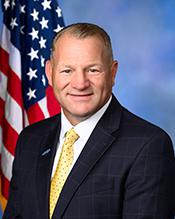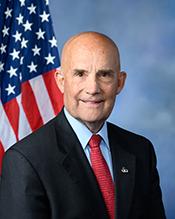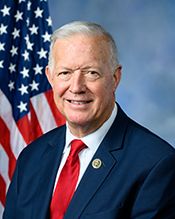H.R. 569: Birthright Citizenship Act of 2025
This bill, known as the Birthright Citizenship Act of 2025, aims to amend the existing laws surrounding birthright citizenship in the United States. The key points of the bill are as follows:
Purpose
The main purpose of this legislation is to clarify which individuals born in the United States are considered nationals and citizens at birth, in accordance with the 14th Amendment of the U.S. Constitution. The amendment suggests that certain conditions regarding the parents of the child will determine the child's citizenship status.
Key Amendments
The bill proposes amendments to Section 301 of the Immigration and Nationality Act, specifically:
- It inserts a new introductory phrase to reframe the citizenship definition.
- It renumbers the existing definitions into a new format.
Definition of Citizenship
According to the proposed amendment, a person born in the United States will be considered "subject to the jurisdiction" of the United States—and thus a citizen—if:
- One of the parents is a citizen or national of the United States,
- One of the parents is an alien who has been lawfully admitted for permanent residence and maintains residence in the United States, or
- One of the parents is an alien with lawful status under immigration laws who is on active duty in the U.S. armed forces.
Impact on Existing Citizens
The bill explicitly states that the changes proposed will not affect the citizenship or nationality status of any individuals born before the enactment of this Act.
Overall Implications
This bill may significantly redefine who qualifies for birthright citizenship in the future, focusing on the status of the parents at the time of birth. Individuals born in the U.S. to parents who do not meet any of the three criteria outlined in the bill may not automatically gain citizenship as is currently the case.
Relevant Companies
None found
This is an AI-generated summary of the bill text. There may be mistakes.
Sponsors
59 bill sponsors
-
TrackBrian Babin

Sponsor
-
TrackRobert B. Aderholt

Co-Sponsor
-
TrackJodey C. Arrington

Co-Sponsor
-
TrackAaron Bean

Co-Sponsor
-
TrackSheri Biggs

Co-Sponsor
-
TrackAndy Biggs

Co-Sponsor
-
TrackJosh Brecheen

Co-Sponsor
-
TrackEric Burlison

Co-Sponsor
-
TrackEarl L. "Buddy" Carter

Co-Sponsor
-
TrackBen Cline

Co-Sponsor
-
TrackAndrew S. Clyde

Co-Sponsor
-
TrackMike Collins

Co-Sponsor
-
TrackElijah Crane

Co-Sponsor
-
TrackDan Crenshaw

Co-Sponsor
-
TrackWarren Davidson

Co-Sponsor
-
TrackTroy Downing

Co-Sponsor
-
TrackChuck Edwards

Co-Sponsor
-
TrackRon Estes

Co-Sponsor
-
TrackPat Fallon

Co-Sponsor
-
TrackScott Franklin

Co-Sponsor
-
TrackRussell Fry

Co-Sponsor
-
TrackBrandon Gill

Co-Sponsor
-
TrackCraig Goldman

Co-Sponsor
-
TrackMarjorie Taylor Greene

Co-Sponsor
-
TrackMichael Guest

Co-Sponsor
-
TrackHarriet M. Hageman

Co-Sponsor
-
TrackMike Haridopolos

Co-Sponsor
-
TrackAndy Harris

Co-Sponsor
-
TrackMark Harris

Co-Sponsor
-
TrackDiana Harshbarger

Co-Sponsor
-
TrackAshley Hinson

Co-Sponsor
-
TrackRichard Hudson

Co-Sponsor
-
TrackRonny Jackson

Co-Sponsor
-
TrackMike Kennedy

Co-Sponsor
-
TrackBrad Knott

Co-Sponsor
-
TrackDoug LaMalfa

Co-Sponsor
-
TrackMorgan Luttrell

Co-Sponsor
-
TrackNancy Mace

Co-Sponsor
-
TrackRichard McCormick

Co-Sponsor
-
TrackJohn McGuire

Co-Sponsor
-
TrackMary E. Miller

Co-Sponsor
-
TrackNathaniel Moran

Co-Sponsor
-
TrackTroy E. Nehls

Co-Sponsor
-
TrackRalph Norman

Co-Sponsor
-
TrackAndrew Ogles

Co-Sponsor
-
TrackMike Rogers

Co-Sponsor
-
TrackJohn W. Rose

Co-Sponsor
-
TrackDavid Rouzer

Co-Sponsor
-
TrackChip Roy

Co-Sponsor
-
TrackJohn H. Rutherford

Co-Sponsor
-
TrackAustin Scott

Co-Sponsor
-
TrackKeith Self

Co-Sponsor
-
TrackDale W. Strong

Co-Sponsor
-
TrackDavid Taylor

Co-Sponsor
-
TrackThomas P. Tiffany

Co-Sponsor
-
TrackDerrick Van Orden

Co-Sponsor
-
TrackRandy K. Weber, Sr.

Co-Sponsor
-
TrackDaniel Webster

Co-Sponsor
-
TrackTony Wied

Co-Sponsor
Actions
2 actions
| Date | Action |
|---|---|
| Jan. 21, 2025 | Introduced in House |
| Jan. 21, 2025 | Referred to the House Committee on the Judiciary. |
Corporate Lobbying
0 companies lobbying
None found.
* Note that there can be significant delays in lobbying disclosures, and our data may be incomplete.
Potentially Relevant Congressional Stock Trades
No relevant congressional stock trades found.